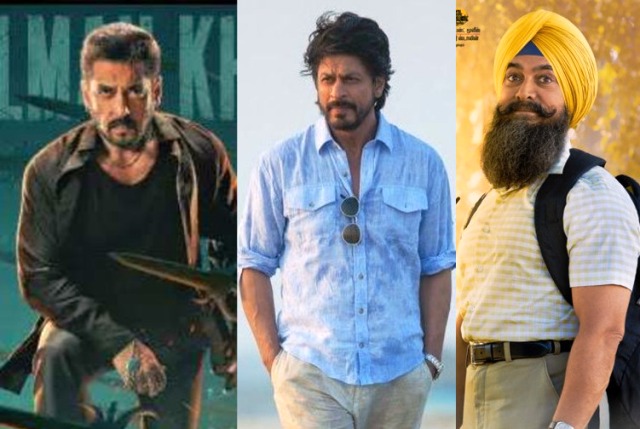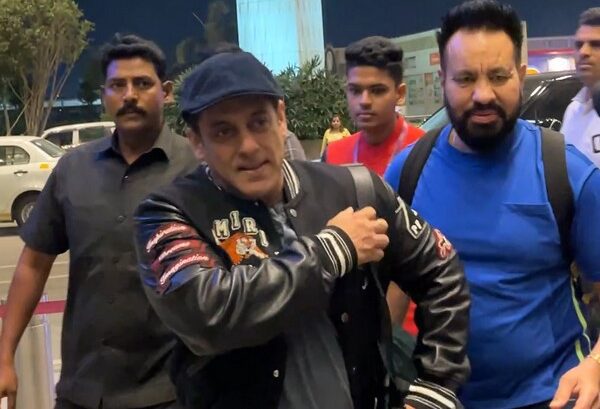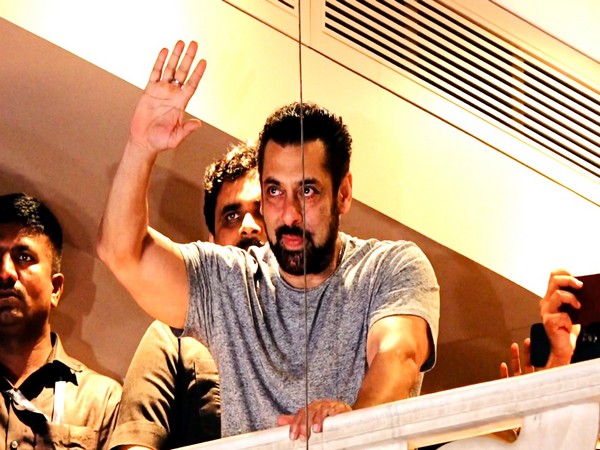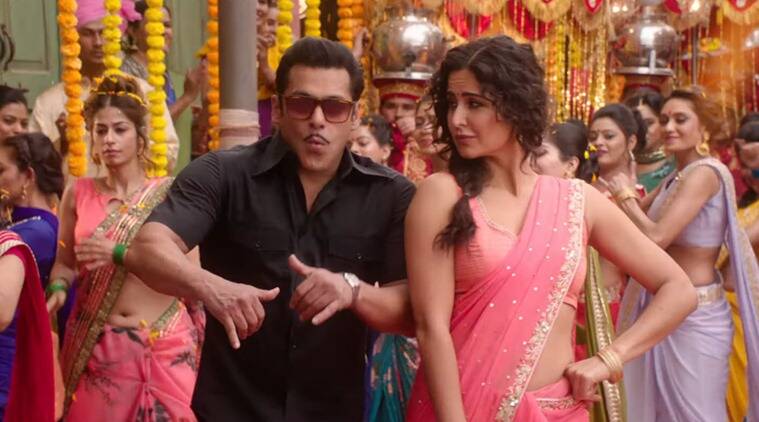The three Khans of Bollywood, who incidentally are of identical age soon to step into their sixties are no longer a guarantee of box office success. Featured in a number of successful films in terms of revenues and profits but only occasionally for cinematic excellence over many years, they to their mortification are finding, whatever their fan base, that the Khans being in lead roles will not ensure the cash register ringing.
Think of the kind of losses the financers will have to incur if a Khan film fails to draw the crowd to theatres, considering the enormity of budget. The bratty Salman Khan, who has made it a practice to take off his shirt at the slightest provocation on the screen and indulge in unworldly heroics, must be greatly distressed that his Eid release Sikander has failed to pull the public to the surviving single screen cinema halls and multiplexes, no longer confined to big cities.
Reviews of the film in English and regional language newspapers, one without exception were highly critical of everything about Sikander from the story to direction to acting. What a comedown from Salman’s Bajrangi Bhaijaan (2015 release), which at well over ₹900 crore was among the highest all-time grossers of Bollywood films. But Salman is not alone in the hot spot. Aamir Khan, who is said to be very selective in choosing films and a perfectionist in whatever he does, had had a major disappointment with Thugs of Hindostan (2018) and Laal Singh Chadda the following year. The two films bombed at the box office putting an end to the myth that the large army of Aamir loyalists will ever underpin the success of any Aamir film outing.
He may be King Khan, arguably with a net worth well ahead of other Bollywood stars, but Shah Rukh Khan too had many occasions to bite the dust with a number of his films not finding favour with the public. Among the SRK films that bombed at the box office are Jab Harry Met Sejal, Zero, Dear Zindagi, Fan, Asoka, Guddu, English Babu Desi Mem and Swades. He will always look back with disappointment at the long list of his films rejected by the public.
The Khans are largely passe after dominating the screen for over three decades. To once again become relevant, they will have to rediscover themselves and do roles conforming to their age. Bollywood big stars, directors and producers will do themselves a service by recognising that the audience has matured and they want film stories relatable to their milieu. Not the Khans alone, the other big Bollywood stars had to eat humble pie more often than in recent years with their film releases meeting with poor box office collections, falling way short of production the cost.
There are occasions when thin turnout of viewers will force multiplexes to withdraw films within days of their release. Referring to the disappointing performance of the Hindi film industry, a spokesperson for Ormax Media says: “The industry experienced a 13 per cent fall in 2024 box office revenue to ₹4,679 crore from the previous year’s ₹5,380 crore.” This doesn’t tell the whole story of industry woes, for over 30 per cent of revenue came from successes of south Indian films dubbed in Hindi.
ALSO READ: The Bollywood Khan-Federacy
Indian films, particularly the ones in Hindi and South Indian languages earn decent revenues from their showing abroad. The Indian diaspora in the US being 5.2 million strong, the films made here have a thriving market in America. But revenues from Indian film exports to the US will be badly dented if President Trump slaps a 100 per cent tariff on foreign films. Pradeep Dwivedi of Eros International says: “The tariff effectively doubles the cost of importing Indian films to the US. A reduction in Indian film presence in the US theatres could reduce India’s soft power and cultural influence through cinema.” There is no love lost between Trump and Hollywood, which acutely surfaced during the Presidential election campaign.
Describing Hollywood film shooting outside the US a “national security threat,” Trump has set in motion the “process of instituting a 100 per cent tariff on any and all movies coming into our country that are produced in foreign lands.” What Trump is planning to mete out to foreign films, including American movies shot in overseas locations falls in line with his overall protectionist trade policy. Trump doesn’t care that he is universally ridiculed for abandoning free trade. “The movie industry in America is dying a very fast death. Other countries are offering all sorts of incentives to draw our filmmakers and studios away from the United States.” To consider this “a national security threat” is ridiculous, notwithstanding the fact that film and television production in Los Angeles is down more than one-third over the past ten years. Trump has scores to settle with American production houses. But the proposed punishment will do a collateral damage to Indian film industry.
To return to the Khans from Bollywood’s existential crisis, Salman is miffed that the South Indians don’t patronise his films though there is goodwill for him in that part of the country. He is quoted as saying: “When my films releases in the South, the people there will greet me with ‘bhai, bhai,’ but they won’t go to theatres. Whereas here, we have embraced stars from the south and their films perform well because we watch them, be it Rajnikanth, Chiranjeevi Garu, Suriya or Ram Charan. But their fans don’t watch our films.”
It’s high time for the swaggering Salman to realise that not to talk of the South where the stars perform the on-screen heroics far better than their counterparts in Hindi films, in the North too the patronage of films like Sikander is fast shrinking. Except for a few (Hrithik Roshan, Tiger Shroff and Shahid Kapoor) Bollywood actors are no match for the dancing skills of southern stars such as Allu Arjun, Ram Charan, Jr. NTR and Prabhu Deva (described as Indian Michael Jackson). Considering all these factors, Bollywood has no justification to grudge the success of films made in the South. In fact, the Hindi adaptation of southern films has proved a booster for Bollywood, confirming that most of the Hindi releases are bereft of ideas and repetitive.
Aamir Khan and some others in the industry hold the poor footfall in theatres to films being released on OTT soon after making appearances on the big screen. Speaking at a session on ‘Studios of the Future,’ Aamir said: “The immediacy of an OTT release after a theatrical release often leaves the audience with an easy way out – why go to the theatre when the film will be streaming soon… You are telling the audience don’t come (to the theatre). That’s why they are not coming in.”
They can go on arguing about the faulty business model and perhaps the industry will soon set out to make needed reforms. But they may be rest assured that for the industry to pull back people to theatres, it will have to focus on content. Pick up good stories, commission scriptwriters who will do justice to the original while taking liberty for film adoption and then leave things to directors. Hey presto, we will see gems being delivered by Bollywood. That will be the only way to get the crowd back at theatres









